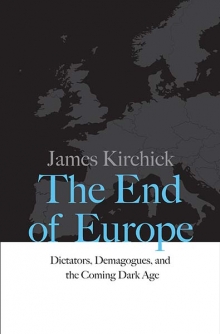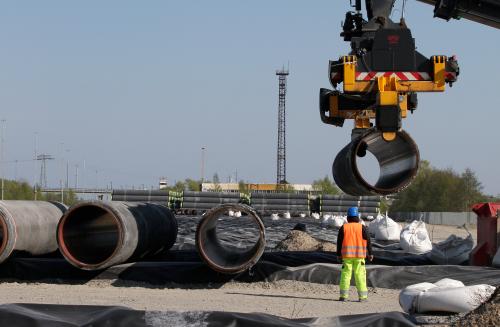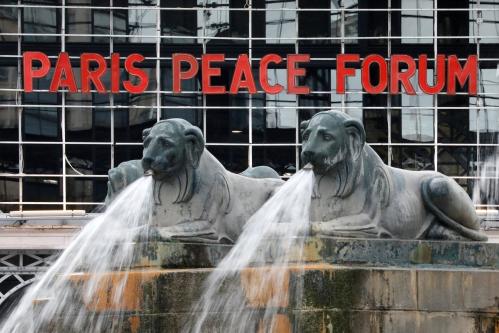Ahead of the Munich Security Conference, James Kirchick argues that the major problems confronting Europe today existed long before Trump entered office and will continue to plague the continent long after he’s gone. This piece originally appeared in the Washington Post.
Here is a brief synopsis of the European political situation:
France and Italy are locked in an unprecedented feud. The European Union can’t agree on whether to recognize Juan Guaidó as the legitimate interim president of Venezuela; nor has Brussels managed to forge any coherent response to Moscow’s latest aggression against Ukraine. Britain still can’t finalize its divorce from the E.U. with less than two months to go before the March 29 Brexit deadline.
You’ll notice one name missing from this dismal summary, conspicuous by its absence: Donald Trump. That’s because the major problems confronting Europe today—anemic growth, Russian belligerence, migration, and deep internal divisions—existed long before Trump ever descended his fabled escalator, and will continue to plague the continent long after he’s gone. (Indeed, I wrote an entire book about them.)
Yet, listening to European elites, one would think Trump is the primary source of the continent’s manifold woes. One recent article in The Post compiled a litany of grievances. A representative complaint, from former German foreign minister Sigmar Gabriel: Trump “has done damage that the Soviets would have dreamt of.”
Put aside the absurdity of Gabriel—who spent much of his time in the foreign ministry calling upon the West to ease sanctions against Russia—criticizing anyone else for being an instrument of Moscow. It’s true that Trump’s boorish behavior and noxious bluster are doing damage to the transatlantic relationship. His questioning of NATO’s very existence is unconscionable. But, by focusing on his tweets and verbal outbursts to the exclusion of actual policy developments on the ground, Europeans are making the situation worse.
Aside from pulling out of the Iran nuclear deal and the Paris climate agreement (entirely legitimate policy options that most of Trump’s Republican competitors would also have implemented), critics can point to few, tangible moves by the Trump administration that have negatively affected the continent’s cohesion. Most of Trump’s offenses—cheering on Brexit, paying compliments to Russian President Vladimir Putin—are rhetorical. On others, namely, his insistence that NATO allies spend more on defense, his opposition to the Nord Stream 2 pipeline, and his withdrawal from the Intermediate-Range Nuclear Forces (INF) Treaty, Trump is right. That some European countries are scrambling to find a way to maintain their trade with Iran even as that regime plots terrorist attacks on European soil, merely demonstrates their fecklessness.
Rather than confront these difficult truths, most Europeans prefer to pretend that the president of the United States is their greatest challenge. And nowhere is this flight from reality more apparent than Germany.
Spoiled for 70 years with an American security blanket, and for the past 20 by a common currency that artificially boosts its export market, Germany has most overreacted to Trump’s unorthodox views concerning NATO and trade. Yet Trump is not to blame for the fact that Berlin’s Nord Stream 2 project is a blatant violation of E.U. competition rules and an abject moral and political betrayal of its Eastern European allies. Trump is not to blame for the pathetic state of the German military. And Berlin has the gall to complain about Trump’s hasty retreat from Syria, despite not having committed a single soldier to the mission.
In response to Russia’s blatant violations of the INF treaty, which puts the strategic stability of Europe at grave risk, German Foreign Minister Heiko Maas reflexively called for a global disarmament conference. “The minister and his cabinet,” writes Gustav Gressel of the European Council on Foreign Relations, “are detached from military realities.” You could say the same about Germans generally, 55 percent of whom believe the United States is a threat—twice as many as those who view North Korea as one.
Not all Europeans are choosing easy Trump-bashing over hard thinking. Last week, I had the pleasure to listen to Norway’s foreign minister, Ine Eriksen Søreide, address the annual Leangkollen security conference in Oslo. She referred to last year’s NATO summit as the “most substantial” in terms of actual commitments made by the allies to their collective defense—even though all the headlines focused on Trump’s behavior. While most Germans inhabit a fairy-tale land where unilateral Western disarmament somehow leads to world peace, Søreide recognized that the “INF treaty cannot be upheld if only one party is upholding it.” As her German counterpart absurdly talks about transforming Europe into a “counterweight” against the United States (an irresponsible and impractical idea), Søreide conceded that partnership with Washington remains Europe’s only hope for avoiding “multipolarity and fragmentation” on the continent.
To be sure, this last comment could be read as a hint for the man in White House as much as a wake-up call to her fellow continentals. Søreide doesn’t use Twitter, which is unusual for a politician her age (42), and which might explain why she doesn’t follow the flock.
But as long as Trump remains in the White House, expect most European thought leaders to continue using him as an excuse to avoid contending with the continent’s serious, systemic and structural problems, or pretend that these challenges are somehow the fault of the ogre in the White House. After all, Europeans can agree on so few things these days.







Commentary
Blaming Trump for their problems is the one thing Europeans can agree on
February 15, 2019